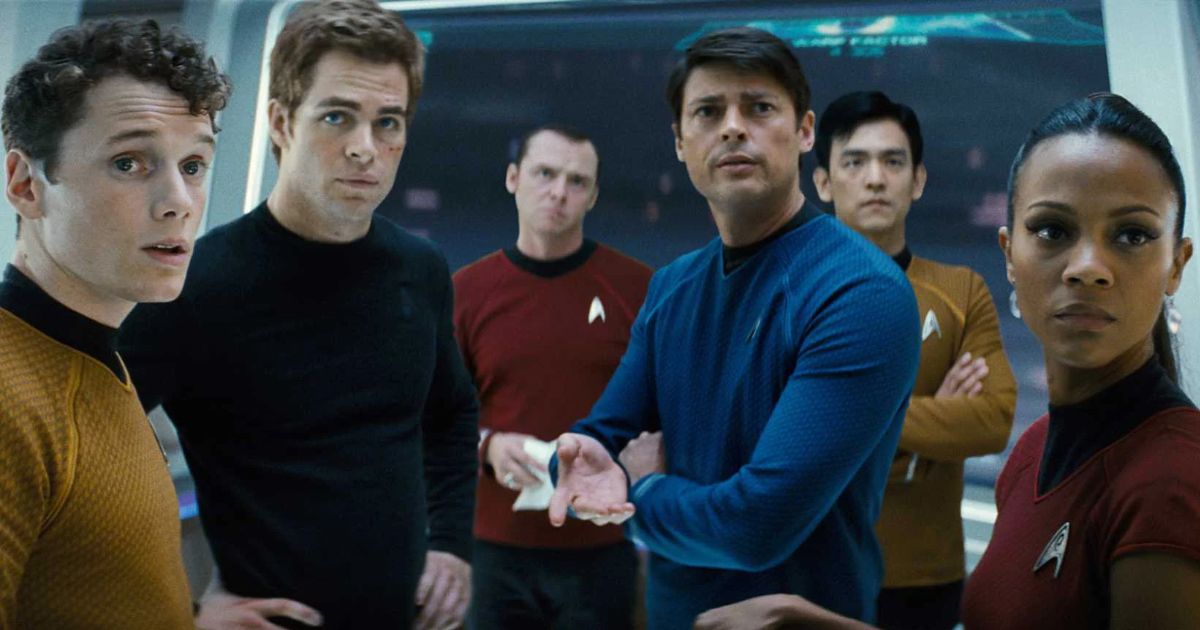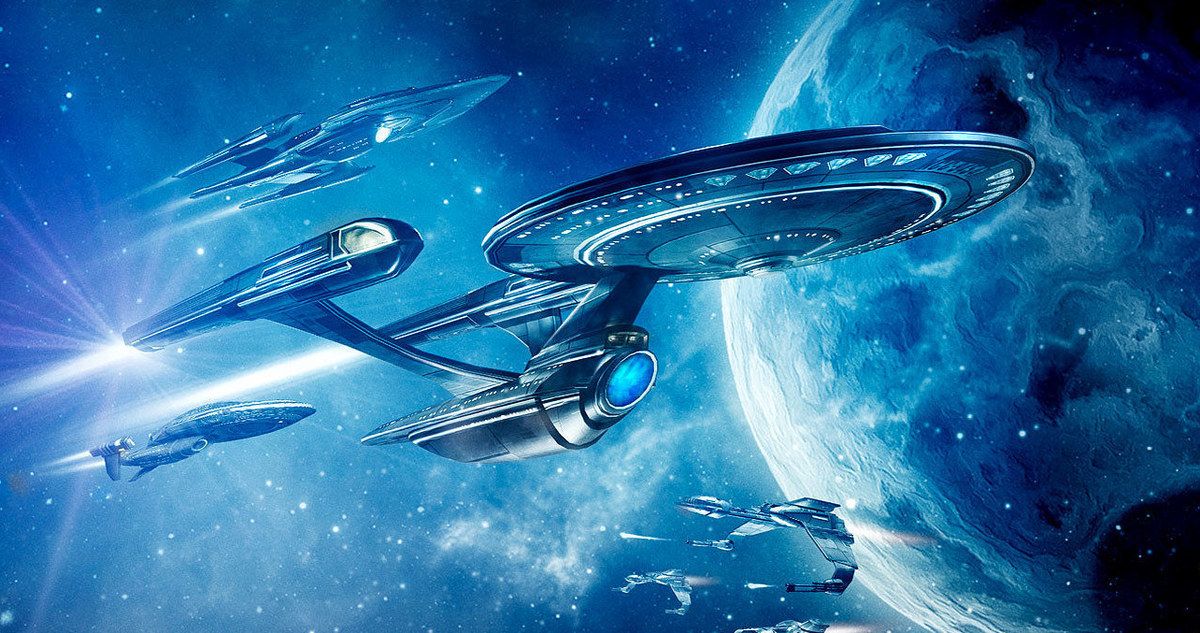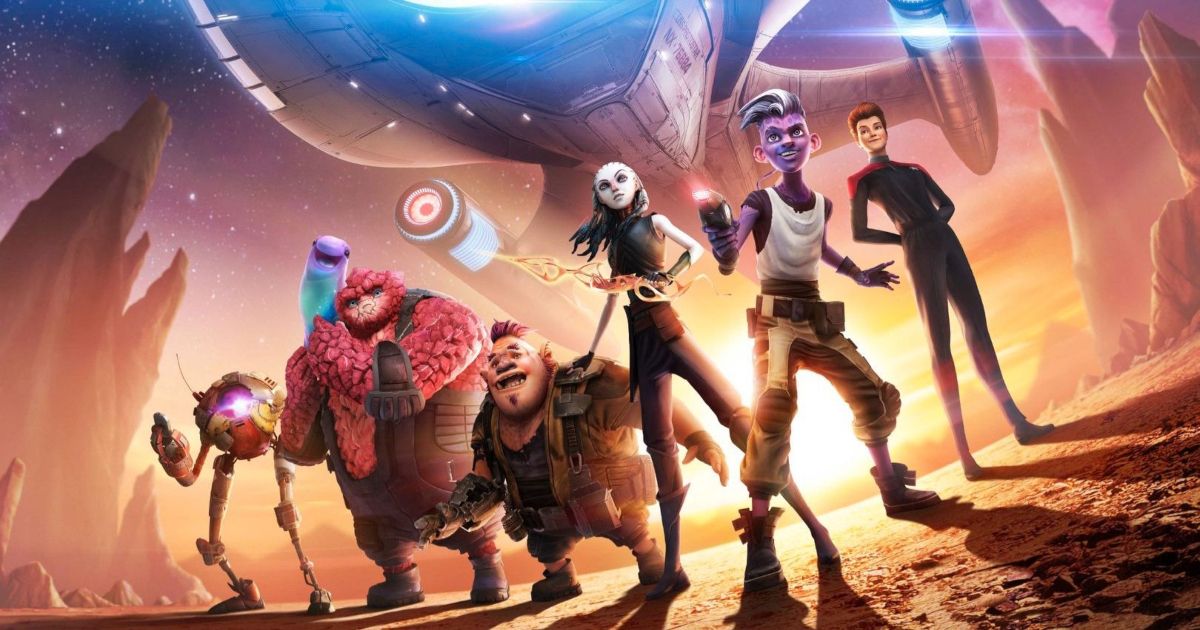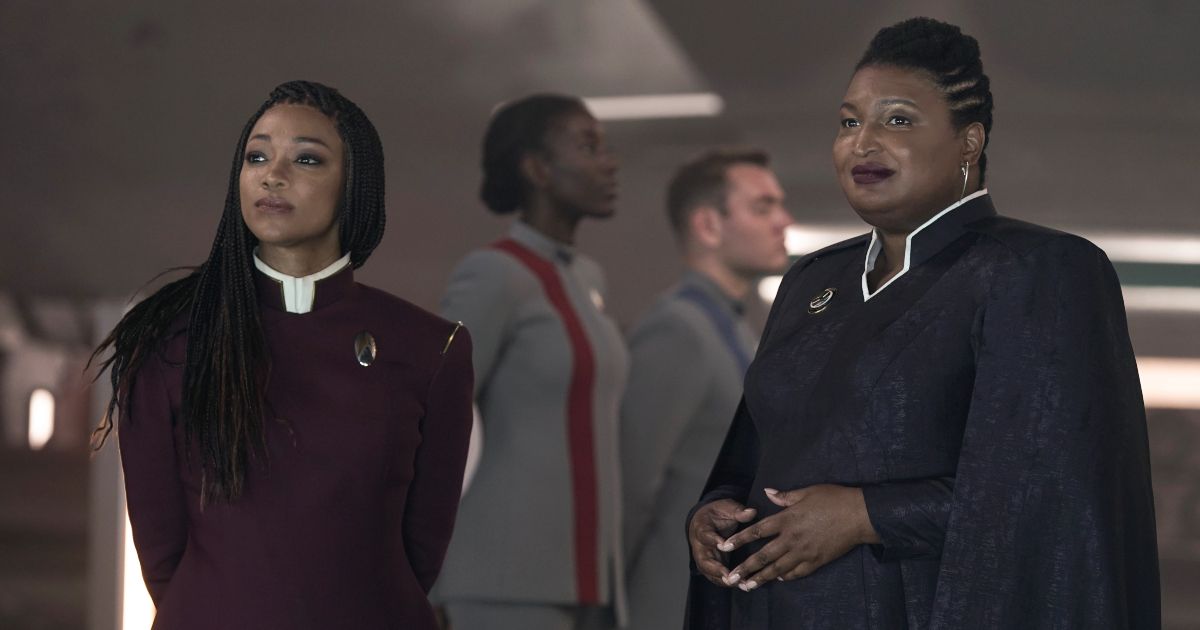Ever since it premiered on television in September 1966, Star Trek has been a source of inspiration for a better future. Across multiple separate TV series that take place at various points and times, and a film series that has spanned 13 entries with a new one set to arrive in 2023, Star Trek is a franchise that means many different things to different viewers, but one thing that's been constant through the franchise in both the text and how pop culture perceives it is that it is an optimistic view of the future.
This is conveyed from the candy-colored outfits to the opening monologue of the original series that promises to explore strange new worlds, seek out new life and new civilization, and go where no one has gone before. This immediately informs the viewer that these are stories of adventure, but ones that don't look to conquer but instead explore the unknown to understand it. To see the wondrous forms of life that wait beyond the stars.
The future in Star Trek is not something to fear, but instead something to aspire to. For over 56 years the franchise has offered plenty of lessons for how the world can be better and achieve this goal. A world where humanity has put aside its differences made leaps forward in technology, made peaceful contact with alien species, and despite fumbling towards tomorrow eventually found its way to a tomorrow where everyone is welcome. This is how Star Trek represents the highest ideals of humanity.
A Future Without Borders
The center of Star Trek is the United Federation of Planets, an organization made up of various alien pieces from the galaxy. Earth is represented as one body, not defined by individual countries but one unified planet. When audiences tuned in to Star Trek in 1966, they saw a multi-racial crew. There was a Black woman who was the lead communications officer, having a prominent role on the bridge of the Enterprise. The helmsman was an Asian man, while the other was a young Russian kid during the Cold War when tensions between Russia and America were high. This was radical on television and was a major inspiration not just for many series that followed but for an audience of children, who became one of Star Trek's largest fanbases.
The 1960s were a turbulent time in America: the fight for civil rights and women's rights, the sexual revolution, and the Vietnam War, just to name a few. Star Trek offered viewers a glimpse at what all this progress could achieve, the idea that prejudice would be a thing of the past and once humans shed that prejudice they could achieve wonders across the stars. That the borders humanity has constructed for itself has held it back and a united global front was the way to achieve greatness.
Science and Technology Improve Life
The ideas of science fiction have often been used to explore humanity's nature with technology in a variety of ways. One of the most popular forms of science fiction is one that shows the dangers of scientific expansion. Both Terminator and The Matrix deal with humanity's fears of artificial intelligence, while Mary Shelly's Frankenstein, which is often cited as the first science fiction story, tells the dangers of humanity pushing the natural order too far. Star Trek, however, does not and instead takes the opposite approach.
Star Trek shows the benefits of science and technology. Forward-thinking and technological advancements don't doom humanity but help it accomplish wonders. In Star Trek: First Contact, the development of warp capability is linked to that of flight, and while there will be dangers ahead with this new technology it can also serve a positive benefit. The universal translators allow for open communication between different species, a key to peace between various civilizations.
The franchise's imagination of what science would accomplish has also been a major source of inspiration for plenty of real-life pieces of technology, from the cell phone to the fact that the Holodeck is clearly VR technology. Many have cited Star Trek as their inspiration for pursuing careers in science and space exploration. This is a case where the fictional show actually had positive impacts on the real world.
Peaceful First Contact
First contact stories often take the form of alien invasion stories, with the first real source being H.G. Well's War of the Worlds published in 1898. Alien invasion movies rose in popularity in the age of sci-fi simplicity, the 1950s at the start of the Cold War, with titles like The Day the Earth Stood Still, Invasion of the Body Snatchers, and The Blob, just to name a few. This was about ten years before the premiere of Star Trek, and when the series finally hit audiences were introduced to a world that saw aliens and humans working together. There were still conflicts with other species, most notably the Klingons, but the core tenant of the series is about how invasion accomplish
However, during the course of the franchise, the Klingons and Federation eventually become allies once the Klingons seek the help of the Federation after their moon is destroyed. The Federation extends a helping hand, and it lays the groundwork for an alliance between the two former enemies. Eventually, a Klingon becomes a member of the Enterprise crew and one of the best characters in Star Trek: The Next Generation. Star Trek shows humanity earns its place amongst the stars, not by being conquered or conquerors, but by understanding and finding commonality.
The Long Road to Progress in Star Trek
While the vision of Star Trek is of a United Humanity, it also informs audiences that the road to get to this point was a difficult one. Numerous conflicts engulfed humanity before the formation of the federation, the most notable being the Eugenics Wars which is the origin story for the franchise's most popular villain, Khan. The addition of Section 31, a black op military branch of Starfleet, implies the road to utopia meant a lot of moral compromises for some individuals. Progress took time, and while it did have a long hard road to get there, eventually things worked out for the better.
Yet for a series that was very much about progress, the franchise for years was focused on going back to the past, such as with prequel series Star Trek Enterprise, the rebooted Kelvin timeline films, and the first two seasons of Star Trek: Discovery. Now though, it has grappled with the Federation's future as both Star Trek Discovery seasons three and four and the first season of Star Trek: Picard showcases a Federation losing its way. They show different points in the Federation that has given into fear, either due to fear of an outside threat or various planetary governments becoming only focused on their citizens.
In the end, with the help of the series' protagonists, both series see the Federation come around and see the light, see it become the Federation that audiences associate with the ideal of the franchise. They are a reminder for the audiences that the institutions that many people hold so dear change over time, and sometimes stray. But the hopeful idealism they stand for can still endure as long as there are people who maintain belief and push forward towards progress.
Real Progress is Never Over
While Star Trek is an optimistic series at its core, it is also one that grapples with the realities that reflect the viewers. The social progress of the 1960s was monumental, yet they are still far from over. It was not until 2015 that same-sex marriage was legalized in all 50 states by the United States Supreme Court. There are multiple legislations across the world that target transgender individuals based on fear. Many individuals are still treated poorly based on their gender, sexual orientation, and race. These are still issues humanity is working through, and sometimes it feels like progress moves backward.
Star Trek is a reminder for the viewer that life is life, and choosing not to understand it is harmful, but choosing to accept it with curiosity and progressive thinking is a way forward. Captain Kirk said it best in Star Trek Beyond, when he says, "We change. We have to. Or we spend the rest of our lives fighting the same battles."

.jpg)




.jpg)